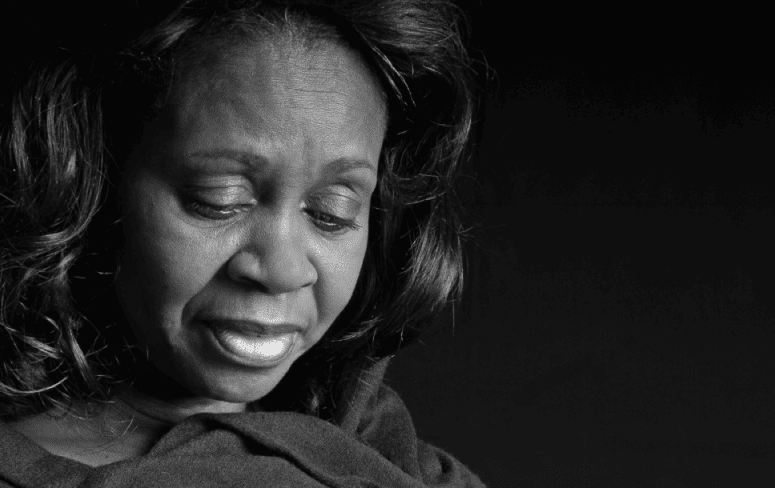Stopping Elder Abuse

By Ellyn M. Loy, LCSW-C
I am the former director of a program at CHANA concerning the issue of elder abuse, so I was asked to blog – I think that’s a verb – about that. Looking through months of other blogs, I saw that folks wrote about many different things in many different ways. Some people used Jewish texts or holidays to create a context for their blog. Some people wrote about a meaningful experience they had. Others gave information on a subject while couching it in Jewish learning. I decided to incorporate all of these in my approach.
The Torah portion for this week comes from the very end of Genesis 47:28-50:26. Jacob is dying and he asks his son Joseph to promise him that he will be buried in Israel, not in Egypt. Joseph replies, ‘I will personally do as you have said.’
I first thought, besides being about older people, how can I translate this into something about elder abuse? I kept re-reading Joseph’s words about his personal commitment to do as his father had asked – not to get someone else to do it, or to ensure that it was done, but to do it himself. The lesson started to become clearer: to what in our lives do we need to make “personal” commitments?
At CHANA, the phone rings daily with people seeking immediate help for a distressing situation: a mother being physically, emotionally and financially abused by her adult son who is a drug addict; a 70-year-old couple who have been arguing for 40 years, but now that arguing has turned dangerous; a 50-year-old woman who finally is ready to talk about the sexual abuse she experienced as a child. When we answer the phone – ‘This is CHANA, how can I help you?’ – our commitment both as individuals and also as an agency is that we WILL help you. We accept the obligation as ours to fulfill on behalf of the community, as Joseph did for Jacob.
Stories about elder abuse are so distressful to hear. We want to believe that, by the time people grow older, things will get better for them. Relationships will be supportive and comforting, not abusive or threatening. We want to believe that families will treat their seniors with respect and honor, not disdain and anger. We want to believe that for the elderly, after a lifetime of caring for other people, now is the time that family and our community will care for them.
Unfortunately, the statistics say otherwise. In the United States over one million elderly people are abused each year. Two percent to 10 percent of persons over the age of 65 report being abused. And most alarmingly, 24 percent of murder victims over the age of 60 are killed by their spouse and 42 percent are killed by their children.
How can each one of us take “personal responsibility” to stop elder abuse in our community? First, we can make a commitment to treat the older adults in our own lives with love, care and respect. We all know that caring for an elderly person can be stressful and demanding. If you are caring for someone and the pressures become overbearing, reach out for help.
Second, we can keep our eyes open for our neighbors and the elderly around us. If you feel that an older person in your community is being harmed in any way, reach out and take personal responsibility to get that person help. They may not be able to do it themselves.
Eight Signs That An Elderly Person Might Be Neglected Or Abused
- Their physical or mental status has changed. They are unkempt, confused, have bruises or look like they are not being cared for, fed or bathed.
- They isolate themselves or others isolate them. They frequently or suddenly decline invitations to be with others.
- Their financial situation becomes unstable or they worry that it will. There are sudden changes in their bank account. They mention they have “given” things away and deny that it was a problem but their demeanor suggests otherwise.
- They are less friendly, more anxious and depressed. Their negative mood is not necessarily due to aging; there could be more going on.
- They stop caring for pets or seem to no longer find pleasure in their animal companions.
- They do not seem to be paying adequate attention to their health problems.
- Their living situation becomes hazardous, i.e. lack of heat, water or adequate food.
- They tell you they are being neglected, exploited or abused. It is important to take them seriously even if the more blatant signs are not yet visible.
Three Things You Can Do To Take Personal Responsibility
- Find a way to ask the elderly person if they are okay or if they need anything. Let them know you are concerned about them. It does not have to reach a level of serious abuse to warrant an intervention.
- Call CHANA and tell someone about your concern. The counselors will help you sort out what you are seeing and feeling. If it seems that the person is in need, CHANA can help the person access the appropriate services.
- If you are caring for an elderly person and are feeling overburdened with the responsibility, talk to someone. There is no shame is seeking help for yourself so that you can continue to provide good care to someone else. There is information and resources that can help you.

